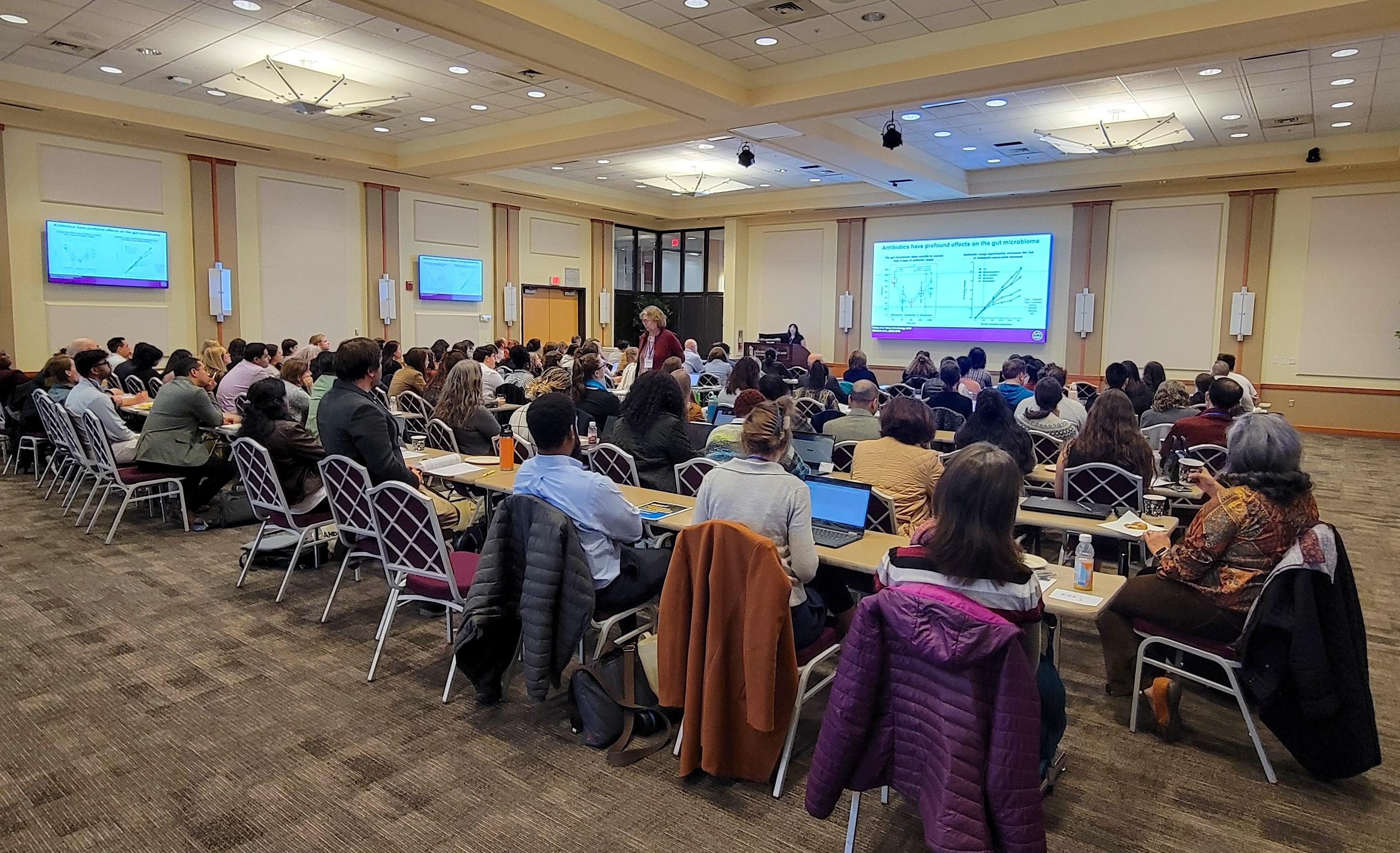
More than 140 participants representing industry, government and academia recently met in Baltimore to explore topics related to innovation and translation in microbiome research.
The 7th annual Mid-Atlantic Microbiome Meet-up, held on March 21 at the University of Maryland, Baltimore, highlighted ongoing microbiome research tied to human and animal health, agriculture, bioengineering, the environmental sciences, and more.
Co-hosted by the Center for Advanced Microbiome Research and Innovation (CAMRI) at the University of Maryland School of Medicine and the Center of Excellence in Microbiome Sciences at the University of Maryland, the one-day symposium featured two keynote talks, nine oral presentations and 42 poster presentations.
Just as important, say the event organizers, was the opportunity for participants from diverse scientific backgrounds—federal scientists, academic researchers and industry leaders involved in the biotech sector—to network and discuss possible collaborations.
“I was blown away by the breadth of the research presented at the meet-up and the level of participation by researchers exploring these topics,” says Mihai Pop, a professor of computer science at UMD who is helping lead microbiome research efforts on the UMD campus. “This demonstrates the important role microbial communities play in virtually all aspects of our lives.”
Pop noted that this year’s meetup drew participants from 10 higher education institutions, two research institutes, four federal institutions, and the American Society for Microbiology.
In the opening keynote, Susan Lynch, a professor of medicine from the University of California, San Francisco, spoke about the role of microbiome in allergic disease in infants. Lynch showed that early-life microbial exposures may drive the onset of asthma and eczema in infants, and proposed potential microbial-related therapies to address these important childhood conditions.
The meet-up concluded with a presentation by Benjamin Wolfe, an associate professor from Tufts University, who spoke about the microbiome of fermented foods. Wolfe described the role microbes play in the fermentation processes used to produce many commonly-used foods (such as sourdough, cheese, kombucha, and more), and highlighted evolutionary and community design principles discovered in his laboratory that can be leveraged to manage microbial communities used in food production.
The meeting was organized by CAMRI and was co-sponsored by Maryland Genomics, QIAGEN, AmpSeq and Symcel.
—Story by UMIACS communications group
The UMD Center of Excellence in Microbiome Sciences receives technical and administrative support from the University of Maryland Institute for Advanced Computer Studies.